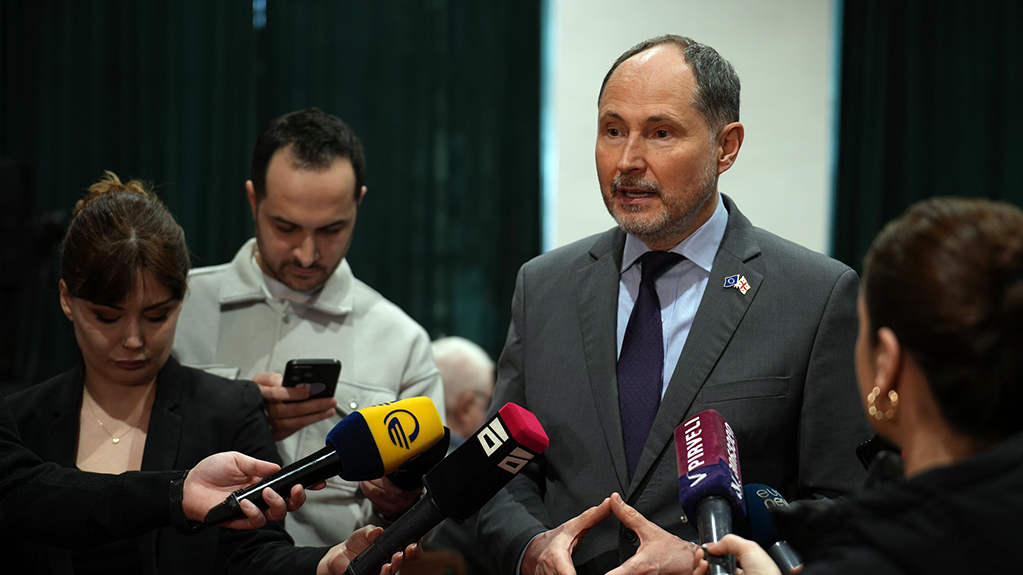Ambassador of the European Union,Pawel Herczynski, has announced that the European Union has suspended the payment of 30 million euros from the European Peace Fund for Georgia. He also stated that if the situation worsens, other measures will be considered.
News
"Unfortunately, the process of Georgia's accession to the European Union is currently at a standstill - this decision was made by the leaders of the European Union at the last European Council meeting.
The European Union has suspended support to Georgia from the European Peace Fund (EPF) amounting to 30 million euros until 2024. If the situation further deteriorates, consideration will be given to additional measures.
"It is regrettable to witness EU-Georgia relations at such a low point, when they could have reached a record high," said Herczynski.
According to the Ambassador of the European Union, recent events in Georgia have shown negative developments, including intimidation of civil society and misinformation about the European Union and its values.
"Last week, European Union leaders clearly stated: if the Georgian government changes its course, the country will not be able to progress on the path to European Union membership. This is a powerful message. On June 27, EU leaders met in Brussels to discuss critical EU issues. They agreed on strategic matters and new institutional leaders, pending parliamentary approval. They also reaffirmed unwavering support for Ukraine and decided to suspend Georgia's accession process. It's truly disheartening, but unfortunately, they had no alternative after months of signaling that there would be consequences if certain legislation passed. The law passed, and now we are seeing those consequences.
Ministers have also agreed to redirect financial support away from the Georgian government towards civil society and free media. Historically, our financial support to Georgian governments has been ten times greater than that to civil society.
The Defense Forces of Georgia will be the first affected by this change. This is particularly painful for me, as I have consistently worked towards making Georgia a major beneficiary of the European Peace Fund. It is saddening that financial support, which has been increasing annually, has now been halted. This is just the initial step; further actions will follow.
We do not wish to harm civil society or the Georgian people; many of our programs are aimed at the most vulnerable groups.
I convey all this with a heavy heart, as relations between Georgia and the European Union should ideally be at their peak, yet they are at an all-time low. I can only hope that on October 26, the Georgian people will make the right choice, and the next government, regardless of its composition, will seek to restore relations with the European Union," Herczynski concluded.
The aid package of 30 million euros allocated to Georgia was intended to finance non-lethal equipment, supplies, services, and potentially technical training for units of the country's defense forces as needed.
On June 27-28, the European Council convened in Brussels, where EU leaders expressed "serious concern" about recent developments in Georgia. Specifically, they highlighted the adoption of Russia's Law on so-called Foreign Agents, which the European Council views as a "regression" from steps outlined in European Commission recommendations regarding candidate status. The European Council urged Georgian authorities to clarify their intentions by altering current actions, which pose a threat to Georgia's European Union path and effectively halt the accession process.















